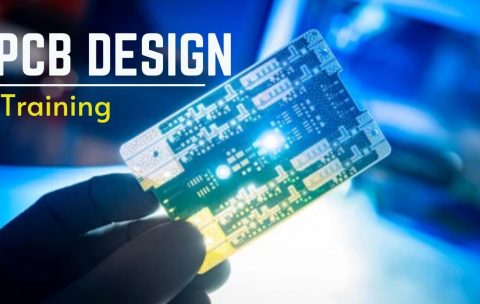PCB Design Course In Bangalore
PCB design courses in Bangalore teach the basics of PCB design, so that you can create boards that meet the needs of your project.
If you want to learn about PCB design, then you should
check out this PCB design course in Bangalore. This course will teach you
everything you need to know about PCB design, from the basics to the advanced
concepts. You will also get to learn about the latest tools and technologies
used in PCB design.
Table of Contents:
1. Introduction to PCB Design
2. The Basics of PCB Design
3. The Different Types of PCBs
4. The Design Process of a PCB
5. The Different PCB Materials
6. The PCB Manufacturing Process
7. The Testing and Quality Control of PCBs
8. The Different Applications of PCBs
9. The Future of PCB Design
10. Conclusion
1. Introduction to PCB Design
PCB design is the process of creating electronic circuits
on a printed circuit board. PCBs are used in a wide variety of electronic
devices, from computers and cell phones to automobiles and aerospace vehicles.
2. The Basics of PCB Design in Bangalore
The basics of PCB design include the different types of
PCBs, the design process of a PCB, the different PCB materials, and the PCB
manufacturing process.
3. The Different Types of PCBs
There are four main types of PCBs: single-sided, double-sided, multilayer, and flex circuit boards. Single-sided PCBs are the simplest type of PCB, and they are used in applications where only one side of the board is used for circuitry.
our pcb training in Bangalore Double-sided PCBs have circuitry on both sides
of the board, and they are used in applications where more complex circuitry is
required. Multilayer PCBs have multiple layers of circuitry, and they are used
in applications where high levels of complexity are required. Flex circuit boards
are made of flexible materials, and they are used in applications where the PCB
needs to be able to bend or flex.
4. The Design Process of a PCB
The design process of a PCB starts with the creation of a
schematic diagram. This diagram is used to create a layout of the PCB. The
layout is then used to create a photomask, which is used to create the actual
PCB.
5. The Different PCB Materials
There are two main types of PCB materials: FR4 and CEM-1.
FR4 is the most common type of PCB material, and it is made of glass-reinforced
epoxy. CEM-1 is a cheaper alternative to FR4, and it is made of
paper-reinforced phenolic.
6. The PCB Manufacturing Process
The PCB manufacturing process starts with the creation of
a photomask. The photomask is used to expose the desired circuitry onto a blank
PCB. The exposed PCB is then etched, and the unwanted material is removed. The
PCB is then drilled, and the holes are created for the components. The PCB is
then plated, and the copper is deposited onto the surface of the PCB. The PCB
is then cleaned, and the final product is inspected for quality.
7. The Testing and Quality Control of PCBs
After a PCB is manufactured, it must undergo testing to
ensure that it meets all of the required specifications. PCBs are also subject
to quality control measures to ensure that they are free of defects.
8. The Different Applications of PCBs
PCBs are used in a wide variety of electronic devices,
from computers and cell phones to automobiles and aerospace vehicles.
9. The Future of PCB Design
The future of PCB design is expected to see the
development of new materials and technologies that will allow for the creation
of smaller, faster, and more complex PCBs.
10. Conclusion our best pcb design training institute in bangalore
Once you have the layout of your PCB created, you need to think about how the board will be
Read More
Prakalpana Technologies
pcb design training cousre in bangalore
react js training in bangalore
gcp training in bangalore
data science course in bangalore
pcb design training in bangalore

Comments
Post a Comment